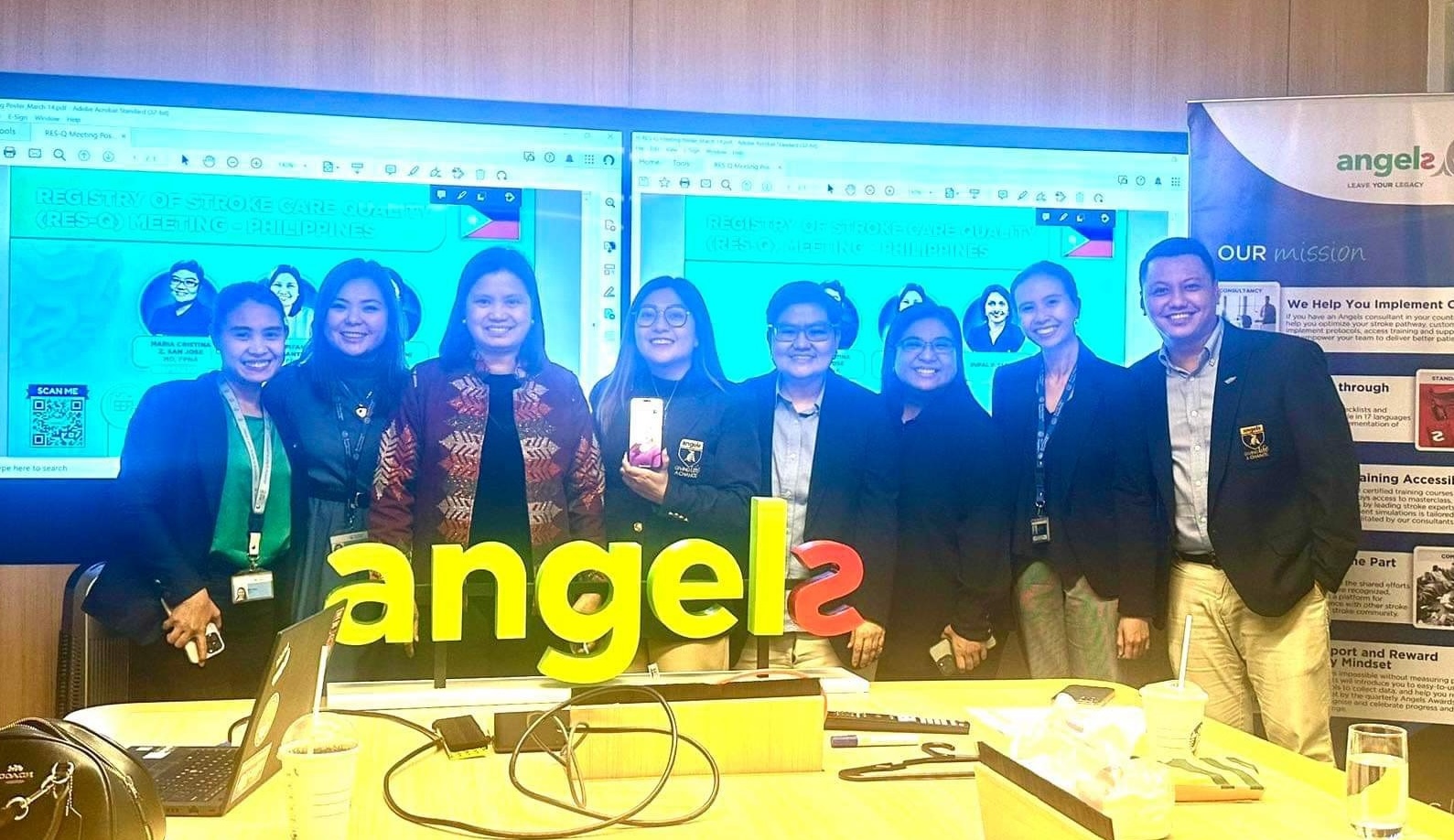
En janvier 2024, le registre d’amélioration de la qualité de l’accident vasculaire cérébral RES-Q avait une histoire à raconter. Le registre était sur le point de lancer leur toute nouvelle plateforme prête à l’emploi à une nouvelle adresse de site Web. La nouvelle plateforme comportait plusieurs nouvelles fonctionnalités attrayantes pour lesquelles la précédente n’avait pas la capacité nécessaire. Ceux-ci comprenaient une fonction d’authentification unique pour accéder à plusieurs comptes, une collecte de données plus intuitive disponible en 15 langues, des tableaux de bord convivials et la possibilité de générer des rapports à la demande.
Une campagne a été lancée pour sensibiliser la communauté mondiale des accident vasculaire cérébral à la nouvelle URL et les rassurer sur le fait que la migration de leurs anciennes données commencerait dès qu'ils se seront réenregistrés sur le nouveau site.
Alors que les consultants Angels du monde entier se sont efforcés d’aider les hôpitaux de leurs pays à faire face au changement, l’équipe des Philippines a identifié une opportunité. Environ huit mois se sont écoulés depuis une réunion importante à Manille au cours de laquelle les hôpitaux prêts à la prise en charge des accident vasculaire cérébral ont reçu une formation pratique sur la façon d’utiliser RES-Q et pourquoi.
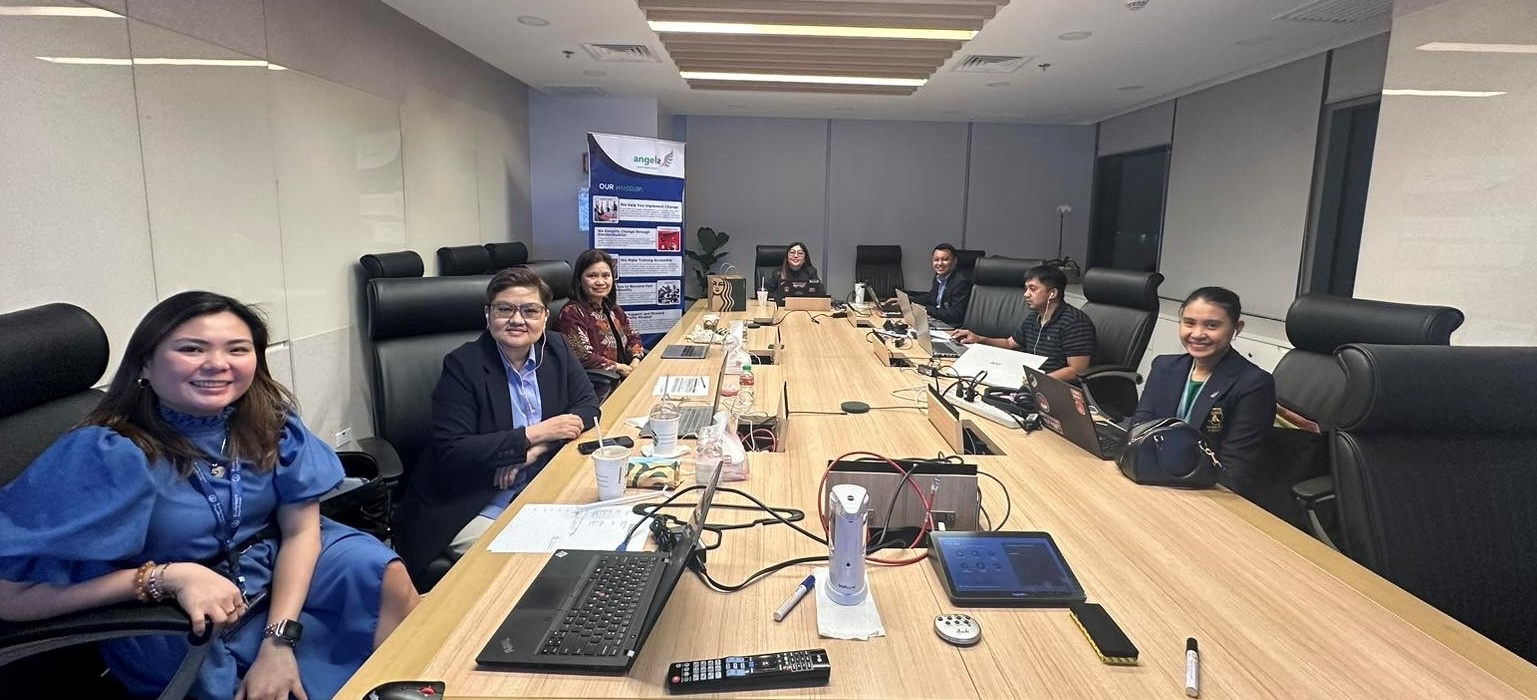
La surveillance de la qualité est une exigence du programme de certification de l’hôpital prêt pour la prise en charge des accidents vasculaires cérébraux aigus (Acute Stroke Ready Hospital, ASRH) que la Société des accidents vasculaires cérébraux des Philippines (Stroke Society of the Philippines, SSP) a mis en place au début de l’année 2023. L'objectif de la réunion de Manilla était de changer les perceptions sur les processus de collecte de données et en rassemblant des professionnels des soins neuro-vasculaires de 47 hôpitaux certifiés ASRH lors d'un seul événement, ils avaient réussi à éclairer de nombreuses bougies avec une flamme.
Maintenant le lancement du "nouveau" RES-Q a présenté une autre opportunité de rassemblement axé sur le suivi de la qualité – cette fois en ligne afin d'atteindre encore plus d'hôpitaux.
Le webinaire qui a eu lieu le 14 mars au soir a permis d’obtenir la participation de plus de 300 participants représentant 75 hôpitaux et a démontré à nouveau la synergie entre Angels et la SSP. La réunion a été abordée par deux anciens présidents de la SSP qui partagent maintenant le rôle de coordonnateur national pour RES-Q, les Drs Maria Epifania Collantes et Maria Cristina San Jose, avec une déclaration de clôture du président actuel de la SSP, le Dr Maria Socorro Sarfati. L’événement principal a été une visite virtuelle de la nouvelle plateforme RES-Q menée par Rupal Sedani, directeur mondial de RES-Q, en provenance de la République tchèque.
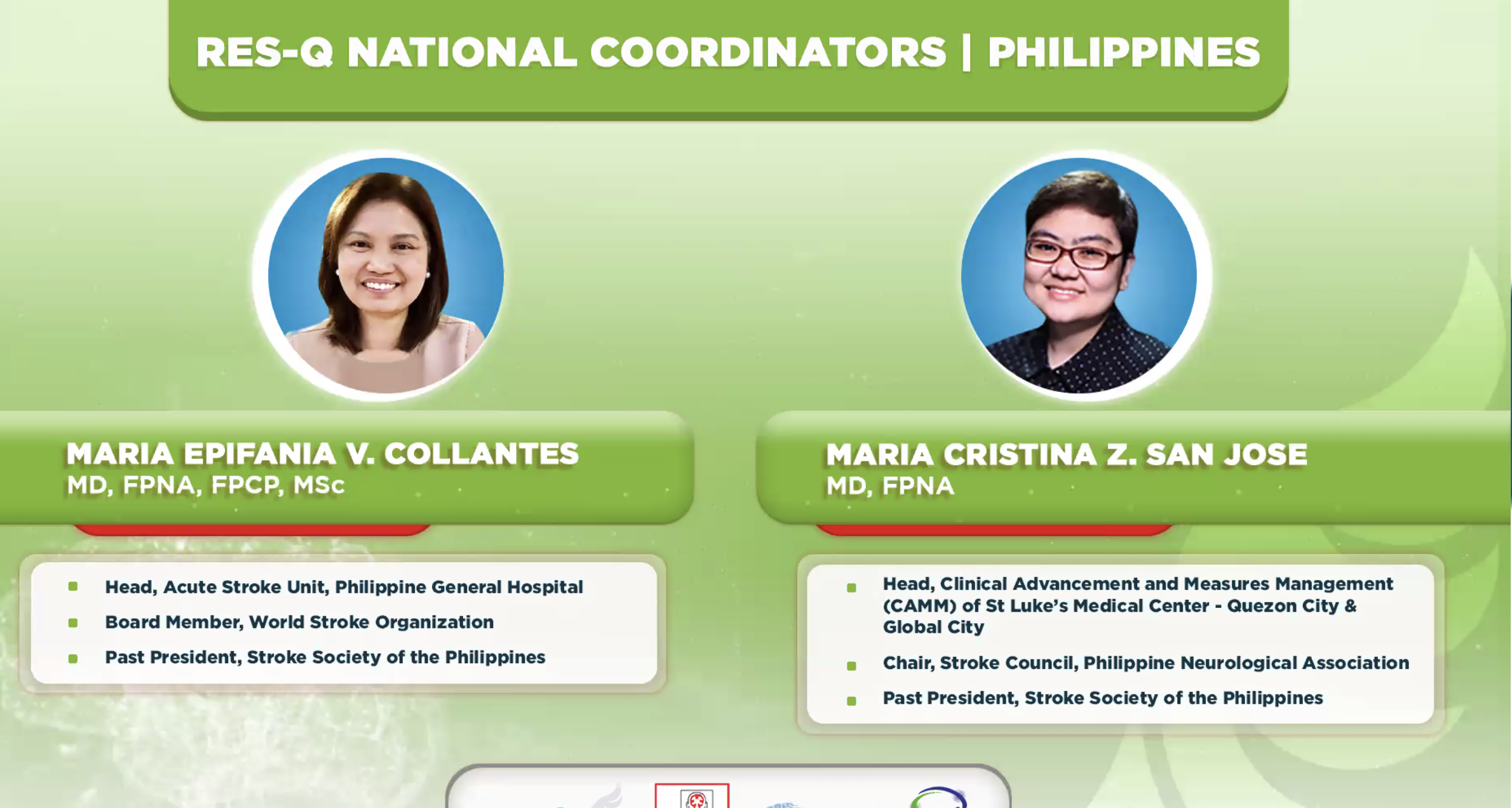
Pourquoi le contrôle qualité
L’adoption de RES-Q comme registre national était une opportunité d’améliorer les soins neuro-vasculaires depuis le début, a déclaré le Dr Collantes. La collecte et l’analyse des données ont permis d’obtenir des avantages à la fois au niveau des soins aux patient et en ce qui concerne le changement de politique. En plus d’identifier les lacunes et les défis au niveau des hôpitaux, la surveillance de la qualité pourrait avoir un impact sur la politique en fournissant des données sur les facteurs de risque et en mettant l’accent sur des questions telles que la disparité entre les sexes et les différences socio-économiques et régionales. Cela pourrait aider à révéler les causes des retards de traitement, à améliorer les délais et les résultats des accident vasculaire cérébral, à tracer les tendances et, au final, à réduire la mortalité.
Il était toutefois nécessaire que les données soient complètes et exactes afin d’obtenir une image claire des soins neuro-vasculaires dans l’ensemble du pays.
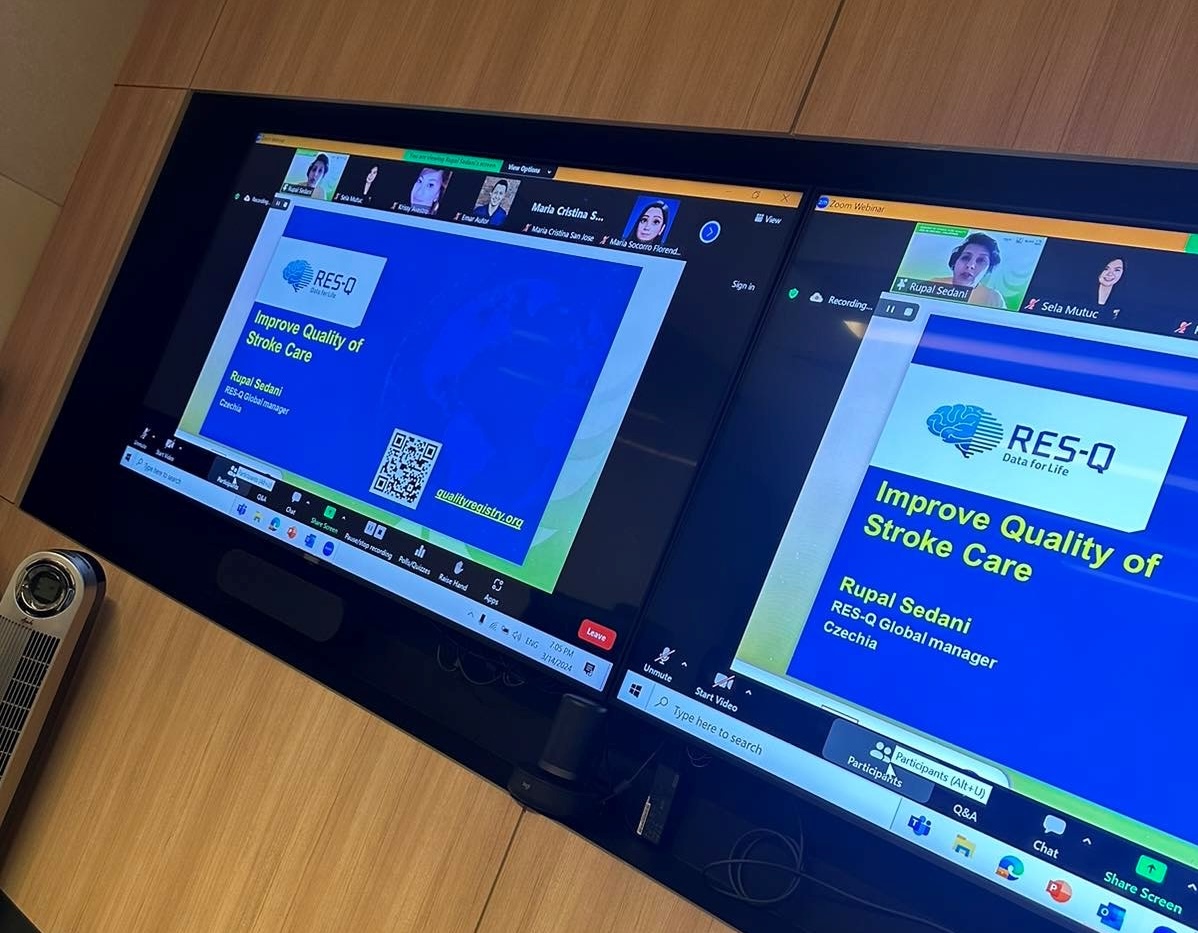
L’utilisation de RES-Q a été un facilitateur clé de l’amélioration des soins de santé et de la qualité fondée sur des preuves aux Philippines, a déclaré le Dr San Jose. La surveillance de la qualité figurait parmi les principales stratégies de promotion et d’intégration des soins de santé fondés sur des preuves, ce qui signifiait s’assurer que l’ensemble du système de prestation de soins de santé était fondé sur des principes fondés sur des preuves.
La surveillance de la qualité a permis un examen systématique des soins par rapport à des critères explicites, a déclaré le Dr San Jose. Les données ont poussé et tiré l’amélioration de la qualité en aidant à identifier et à analyser les problèmes. Les informations obtenues étaient la base de la prise de décision et la décision a conduit à l’action.
La collecte de données a également permis de comparer les résultats et les processus par rapport à ceux des concurrents et des leaders du secteur.
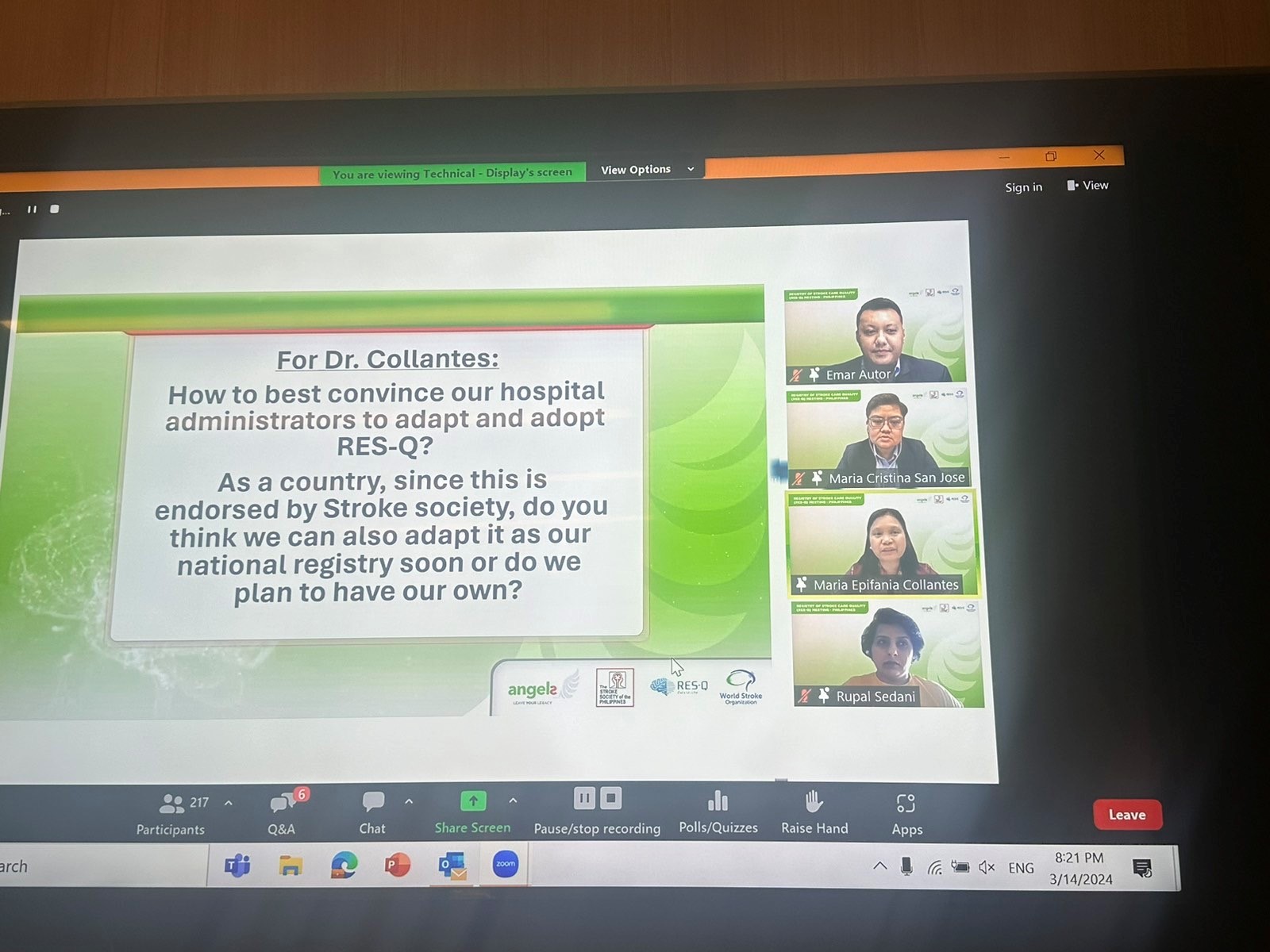
Faites-en une habitude
La durée de la question a suivi la visite virtuelle de la plateforme améliorée et conviviale RES-Q qui a apporté et apporté des informations supplémentaires :
Q : Comment adopter RES-Q pour convaincre les administrateurs des hôpitaux ?
Dr Collantes : Expliquez-leur les avantages et montrez-leur comment les données peuvent être utilisées pour améliorer les soins neuro-vasculaires.
Q : Les Philippines auront-elles leur propre registre ?
Dr Collantes : RES-Q est notre registre national des accident vasculaire cérébral. Il est reconnu au niveau international et fournit un feedback en temps réel qui permet l’amélioration.
Q : Qui doit prendre en charge RES-Q dans notre hôpital ?
Dr San Jose : Identifiez votre champion du changement – quelqu’un qui s’engage à utiliser les données pour l’amélioration de la qualité.
Q : Quelle est la meilleure pratique pour signaler et communiquer les résultats de surveillance de la qualité dans votre service ou hôpital ?
La réponse à cette question a été au cœur de ce que signifie s’engager en faveur d’une amélioration continue de la qualité et de meilleurs résultats pour les patients. D’une longueur de quatre mots seulement, elle contenait un conseil qui, s’il était intégré par les hôpitaux, accomplirait tout ce que l’activation du contrôle de la qualité, y compris ce webinaire, était censée accomplir.
Le Dr San Jose n'a pas hésité pendant un instant : "Faites-en une habitude", dit-elle.


